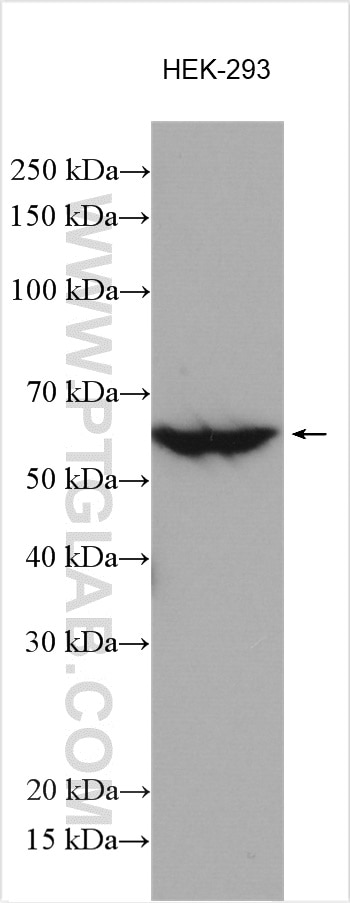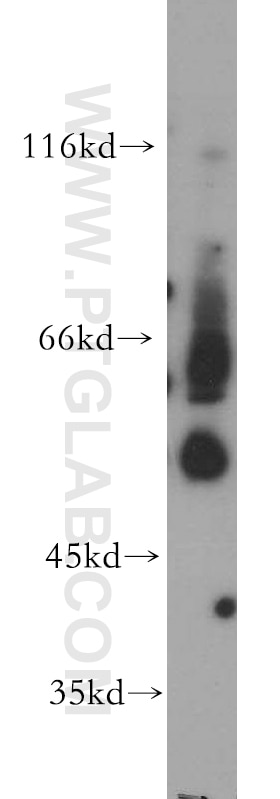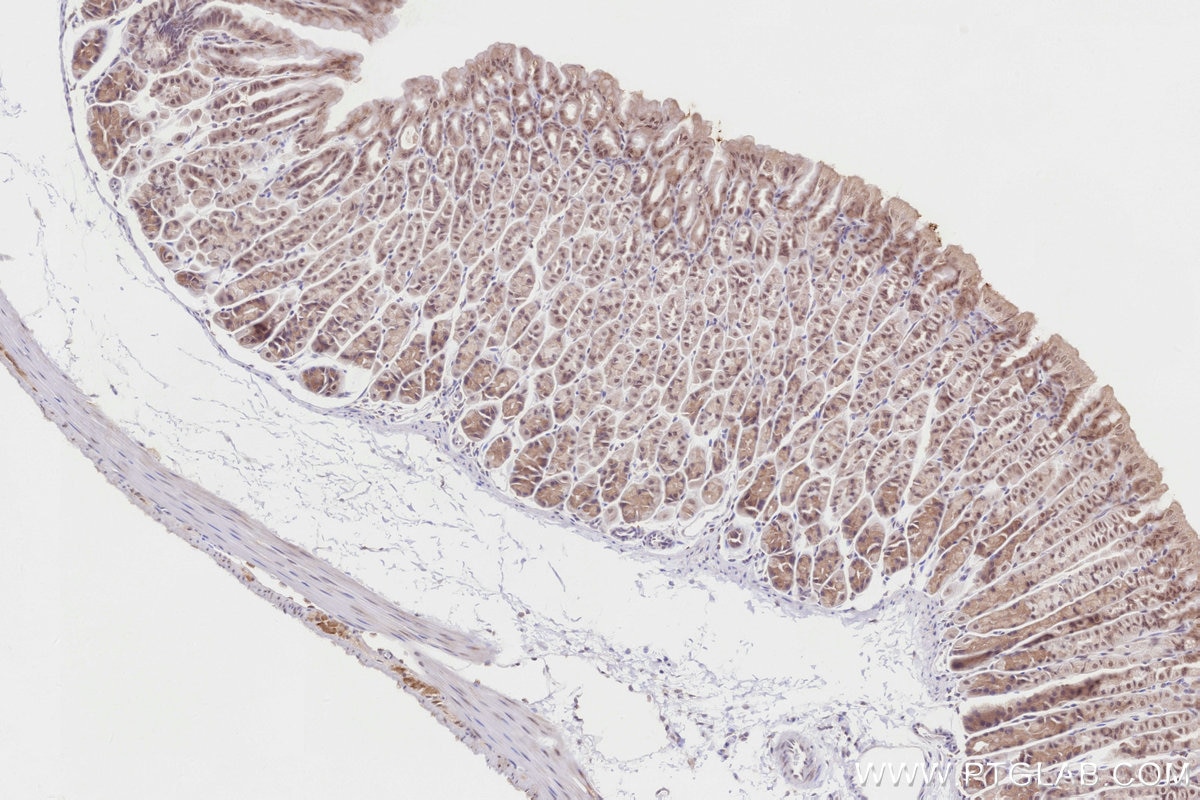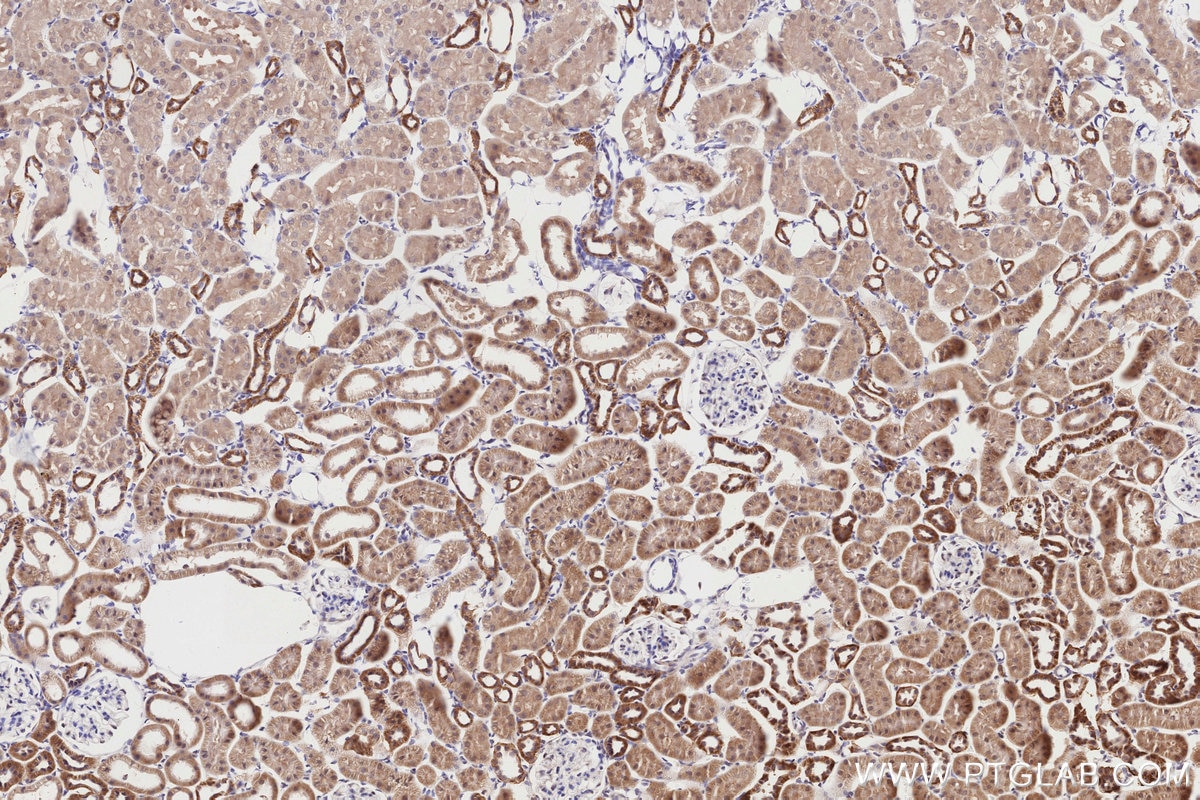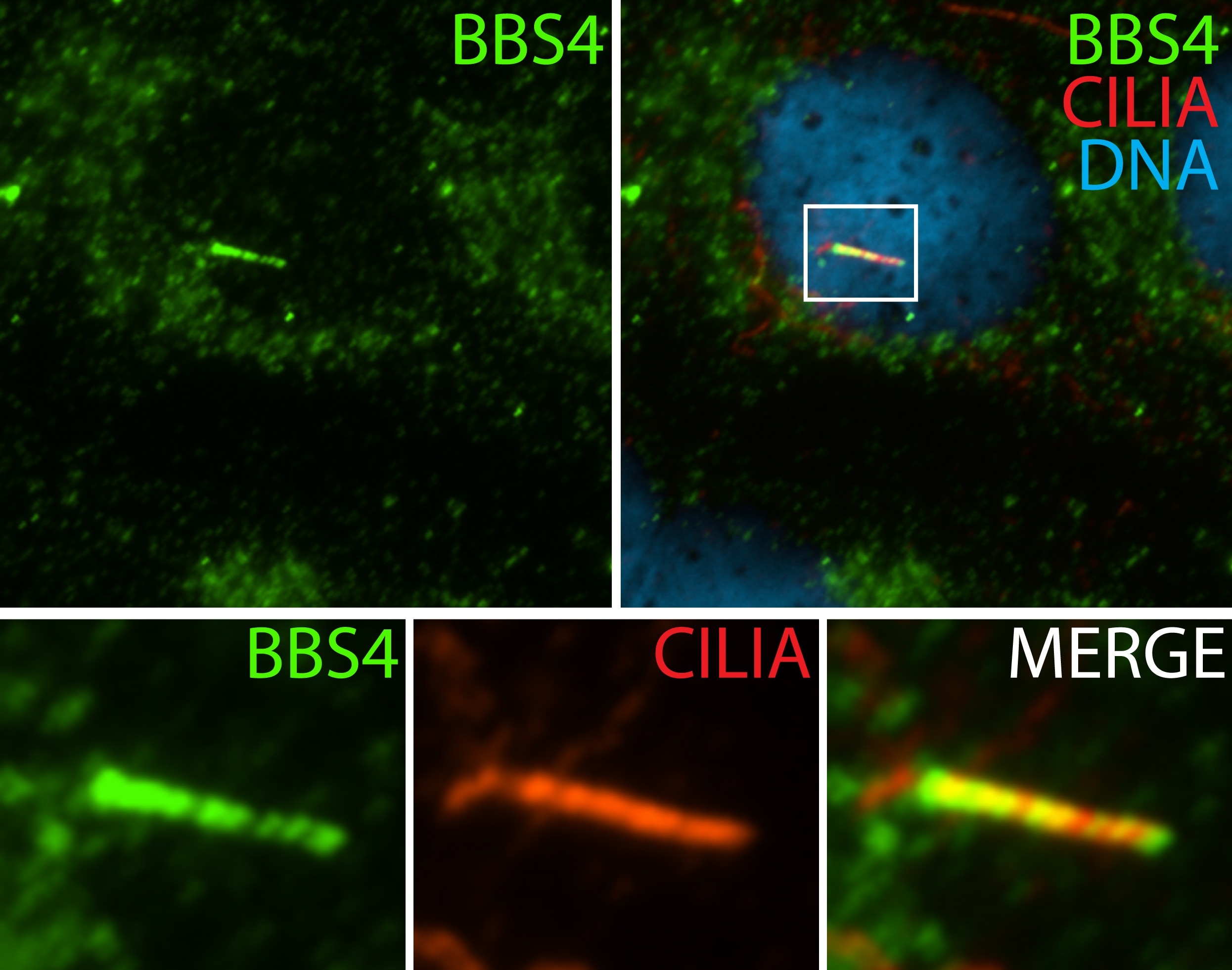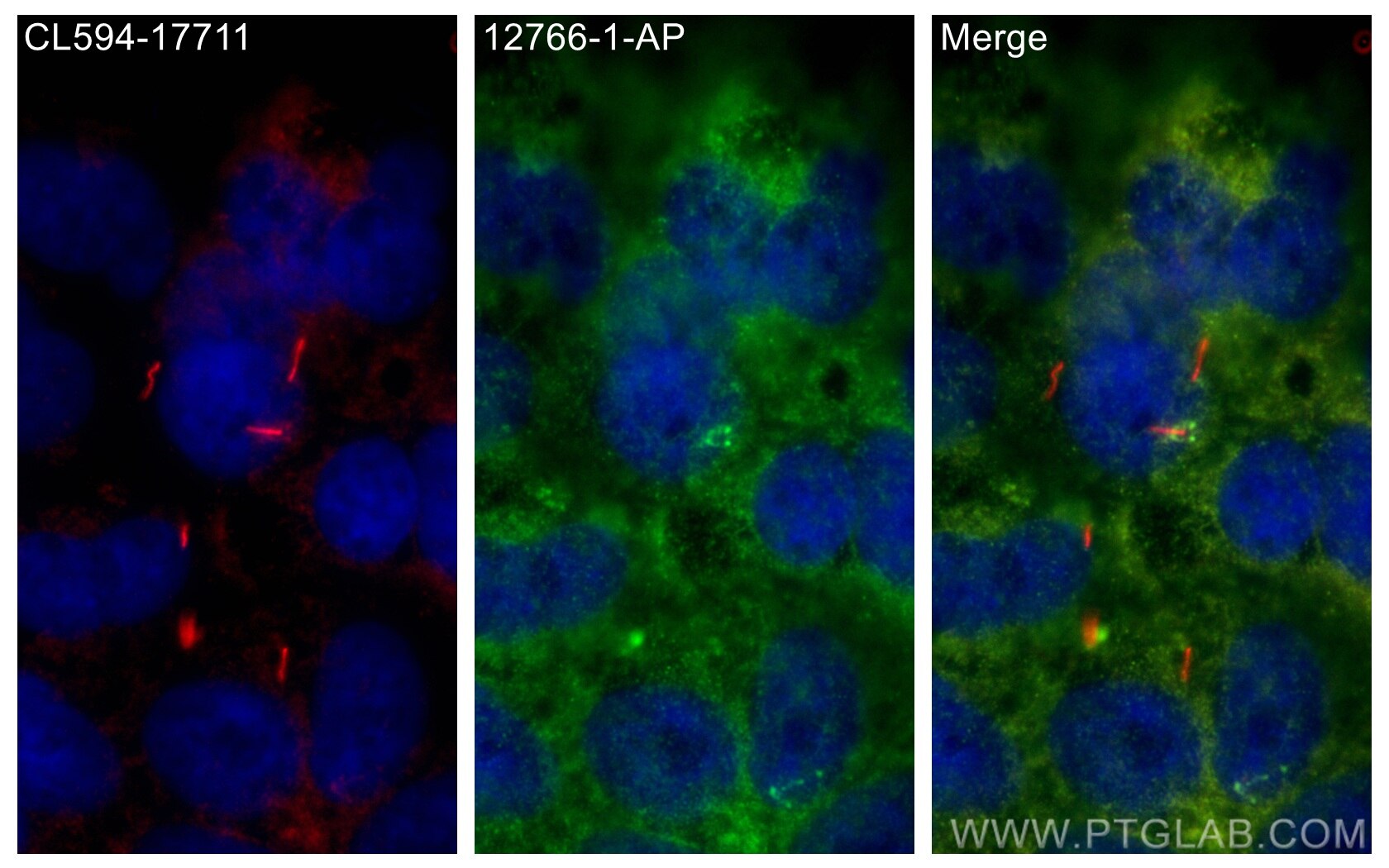- Featured Product
- KD/KO Validated
BBS4 Polyklonaler Antikörper
BBS4 Polyklonal Antikörper für WB, IHC, IF/ICC, ELISA
Wirt / Isotyp
Kaninchen / IgG
Getestete Reaktivität
human, Maus, Ratte
Anwendung
WB, IHC, IF/ICC, ELISA
Konjugation
Unkonjugiert
Kat-Nr. : 12766-1-AP
Synonyme
Geprüfte Anwendungen
| Erfolgreiche Detektion in WB | HEK-293-Zellen, Mausnierengewebe |
| Erfolgreiche Detektion in IHC | Maus-Magengewebe, Rattennierengewebe Hinweis: Antigendemaskierung mit TE-Puffer pH 9,0 empfohlen. (*) Wahlweise kann die Antigendemaskierung auch mit Citratpuffer pH 6,0 erfolgen. |
| Erfolgreiche Detektion in IF/ICC | hTERT-RPE1-Zellen |
Empfohlene Verdünnung
| Anwendung | Verdünnung |
|---|---|
| Western Blot (WB) | WB : 1:500-1:4000 |
| Immunhistochemie (IHC) | IHC : 1:500-1:2000 |
| Immunfluoreszenz (IF)/ICC | IF/ICC : 1:50-1:400 |
| It is recommended that this reagent should be titrated in each testing system to obtain optimal results. | |
| Sample-dependent, check data in validation data gallery | |
Veröffentlichte Anwendungen
| KD/KO | See 3 publications below |
| WB | See 11 publications below |
| IF | See 12 publications below |
Produktinformation
12766-1-AP bindet in WB, IHC, IF/ICC, ELISA BBS4 und zeigt Reaktivität mit human, Maus, Ratten
| Getestete Reaktivität | human, Maus, Ratte |
| In Publikationen genannte Reaktivität | human, Maus, Ratte |
| Wirt / Isotyp | Kaninchen / IgG |
| Klonalität | Polyklonal |
| Typ | Antikörper |
| Immunogen | BBS4 fusion protein Ag3430 |
| Vollständiger Name | Bardet-Biedl syndrome 4 |
| Berechnetes Molekulargewicht | 519 aa, 58 kDa |
| Beobachtetes Molekulargewicht | 50-60 kDa |
| GenBank-Zugangsnummer | BC027624 |
| Gene symbol | BBS4 |
| Gene ID (NCBI) | 585 |
| Konjugation | Unkonjugiert |
| Form | Liquid |
| Reinigungsmethode | Antigen-Affinitätsreinigung |
| Lagerungspuffer | PBS with 0.02% sodium azide and 50% glycerol |
| Lagerungsbedingungen | Bei -20°C lagern. Nach dem Versand ein Jahr lang stabil Aliquotieren ist bei -20oC Lagerung nicht notwendig. 20ul Größen enthalten 0,1% BSA. |
Hintergrundinformationen
BBS4 (Bardet-Biedl syndrome protein 4) is one of the early BBS proteins discovered, with 35 mutations reported to cause the BBS phenotype (PMID: 26762677). BBS4 undergoes localization to the centriolar satellites of centrosomes and basal body of primary cilia, where it takes part in recruiting cargo to centriolar satellites and allowing the formation of a functional centrosomal microtubule organizing center (MTOC) (PMID: 25860617). Some research has found that BBS4 expression in humans during the development of CNS and sensory organs, concerning the cardinal clinical signs of BBS (PMID: 33860840).
Protokolle
| PRODUKTSPEZIFISCHE PROTOKOLLE | |
|---|---|
| WB protocol for BBS4 antibody 12766-1-AP | Protokoll herunterladen |
| IHC protocol for BBS4 antibody 12766-1-AP | Protokoll herunterladenl |
| IF protocol for BBS4 antibody 12766-1-AP | Protokoll herunterladen |
| STANDARD-PROTOKOLLE | |
|---|---|
| Klicken Sie hier, um unsere Standardprotokolle anzuzeigen |
Publikationen
| Species | Application | Title |
|---|---|---|
Nat Commun Coupling bimolecular PARylation biosensors with genetic screens to identify PARylation targets. | ||
PLoS Biol Loss of Bardet-Biedl syndrome proteins causes synaptic aberrations in principal neurons.
| ||
Dev Cell The CEP19-RABL2 GTPase Complex Binds IFT-B to Initiate Intraflagellar Transport at the Ciliary Base. | ||
Autophagy The ciliary protein RPGRIP1L governs autophagy independently of its proteasome-regulating function at the ciliary base in mouse embryonic fibroblasts. | ||
EMBO Rep Aurora Kinase A proximity map reveals centriolar satellites as regulators of its ciliary function. |
Rezensionen
The reviews below have been submitted by verified Proteintech customers who received an incentive for providing their feedback.
FH Christine (Verified Customer) (01-27-2023) | Detect 1 band above 47 kDa marker (expected size of BBS4 is 50-60 kDa), but also a much stronger band just below the 20 kDa marker
|
